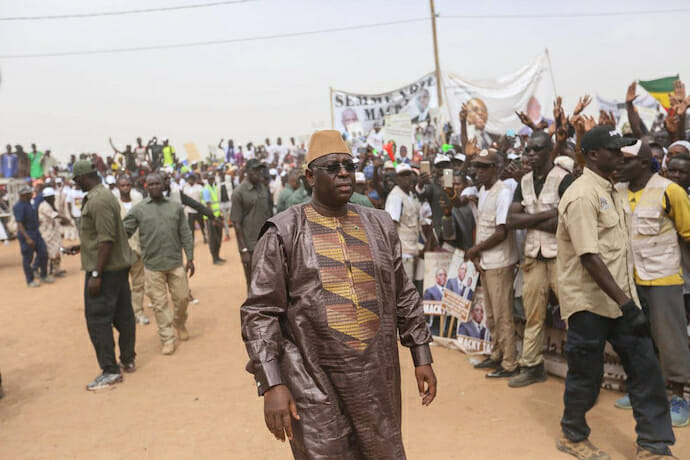
With Better Leaders, Africa Can Achieve Deep Development
According to the Norwegian Refugee Council, humanitarian groups have received a paltry 27% of the total funding required to provide basic care and relief to those affected by conflict and crises across the world so far this year. The Council’s Secretary-General, Jan Egeland, publicly lamented the fact earlier this week, branding the sluggish funding efforts as “alarming.”
Though undoubtedly rooted in altruistic sentiments, Egeland’s viewpoint fails to take into account the other pieces of the puzzle besides monetary and material aid. Indeed, it is the absence of good governance that is all too often the undoing of impoverished countries. Foreign aid efforts inevitably remain largely paternalistic, meaning that their beneficiaries will struggle to achieve the independence and self-sustainability that’s imperative for real development and growth.
Sadly, ineffective and self-interested leadership has for far too long been the rule rather than the exception in Africa. As of the start of this year, over 15 heads of state have been in power for more than a decade, with three of those ruling for more than 30 years. A 2018 index published by The Economist found that over 20 nations in sub-Saharan Africa suffer from authoritarian governance. No less than 18 countries have tweaked their constitutions in the last 20 years to allow their rulers to stay in power longer.
A different kind of support like throwing money at the problem through aid initiatives means that strongmen don’t need to rely on taxation for revenue, enabling them to line their pockets and refrain from investing capital into homegrown industries. In this way, domestic production and local economies are indirectly harmed, but they can also be compromised in a more direct manner when charity and donations negate work that could have been undertaken by indigenous industries.
A more long-term strategy of assisting African development could be by putting in place the systems, infrastructure, and environment for these industries to prosper. Asia was able to capitalise upon its domestic manufacturing sector to catapult itself to the forefront of the global economy. The same might not be viable for Africa. Instead, so-called “smokestack-less” industries could hold the key to economic prosperity.
The services sector grew at six times the rate of merchandising between 1998 and 2015, while science and technology offer promising avenues going forward. If foreign assistance can support the development of these industries, all that remains is to ensure that they are governed by those who truly put the national interest over personal ones.

Africa’s track record in terms of good governance isn’t the most inspiring one, but there are reasons to be more positive. Senegal’s Macky Sall, for example, has taken great strides by creating a Ministry of Good Governance to decentralise power and reward those acting with integrity. He has also introduced a Plan for an Emerging Senegal (PES) aimed at bolstering the country’s long-term economic outlook, inaugurated the National Office against Fraud and Corruption (OFNAC) and reduced his own term as president from seven to five years after a public referendum.
The way the country has been dealing with allegations of oil drilling contracts being improperly awarded by the president’s brother may be indicative of progress as well. The allegations were dismissed by the African Chamber of Energy and Sall’s brother since resigned, but Sall has ordered a probe into the claims. If justice is served through robust investigative work, Senegal will have proven to be on a solid path to the future.
A reliable state apparatus able to enforce the rule of law is paramount given that Senegal is hoping to develop its oil sector to become more independent on oil and gas imports. The development of several new oil fields is expected to provide $16 billion in” undiscounted fiscal take for the government” – money that can further be invested into projects that strengthen the judiciary and rule of law.
Meanwhile, Ghana has also shown signs of improvement since the appointment of Nana Akufo-Addo two years ago. Elected on a mandate of making his government more accountable, Akufo-Addo has raised eyebrows in the international community with his unorthodox methods. Most notably, his creation of the post of an “Anti-Corruption Tsar” – and his choice of an opposition party member as its inaugural holder – has struck chords with those who wish to see a more transparent political system in the country.
Regarded as an exceptionally stable country on a continent with pervasive conflict, Ghana already stands out for having balanced democratic consolidation with economic growth. Risks of high public debt and deteriorating solvency is rising, though the country’s young oil sector could be absorbing some of these risks. Most importantly, the country is looking for more indigenous ways to develop, independent of “the generosity and charity of the European taxpayer.”
Consequently, Akufo-Addo made headlines for his rejection of international aid, claiming that a country which has been independent for 60 years should not still be dependent on handouts. Since Ghana is heavily reliant on such aid programmes to bolster its social and labour, his words were more a rallying call to his African counterparts than a literal rejection of funds – and it’s a timely one indeed.
Industry, integrity, and accountability are the keys given that Africa loses an estimated $148 billion to corruption every year. The depressing truth is that the continent is not yet transparent enough for foreign aid incentives to achieve their objectives without incident. Instead, the West must work hard to ensure that accountability and integrity become fundamental cornerstones of governments all across the continent.
Once those in power become motivated by the collective good rather than their own bank balance, Africa will be well-placed to prosper. A variety of burgeoning industries, a ballooning population, and natural resources means that Africa holds unprecedented potential for becoming the breadbasket not only for its own people but for the entire global populace. Good governance is the key to turning that potential into actuality.

